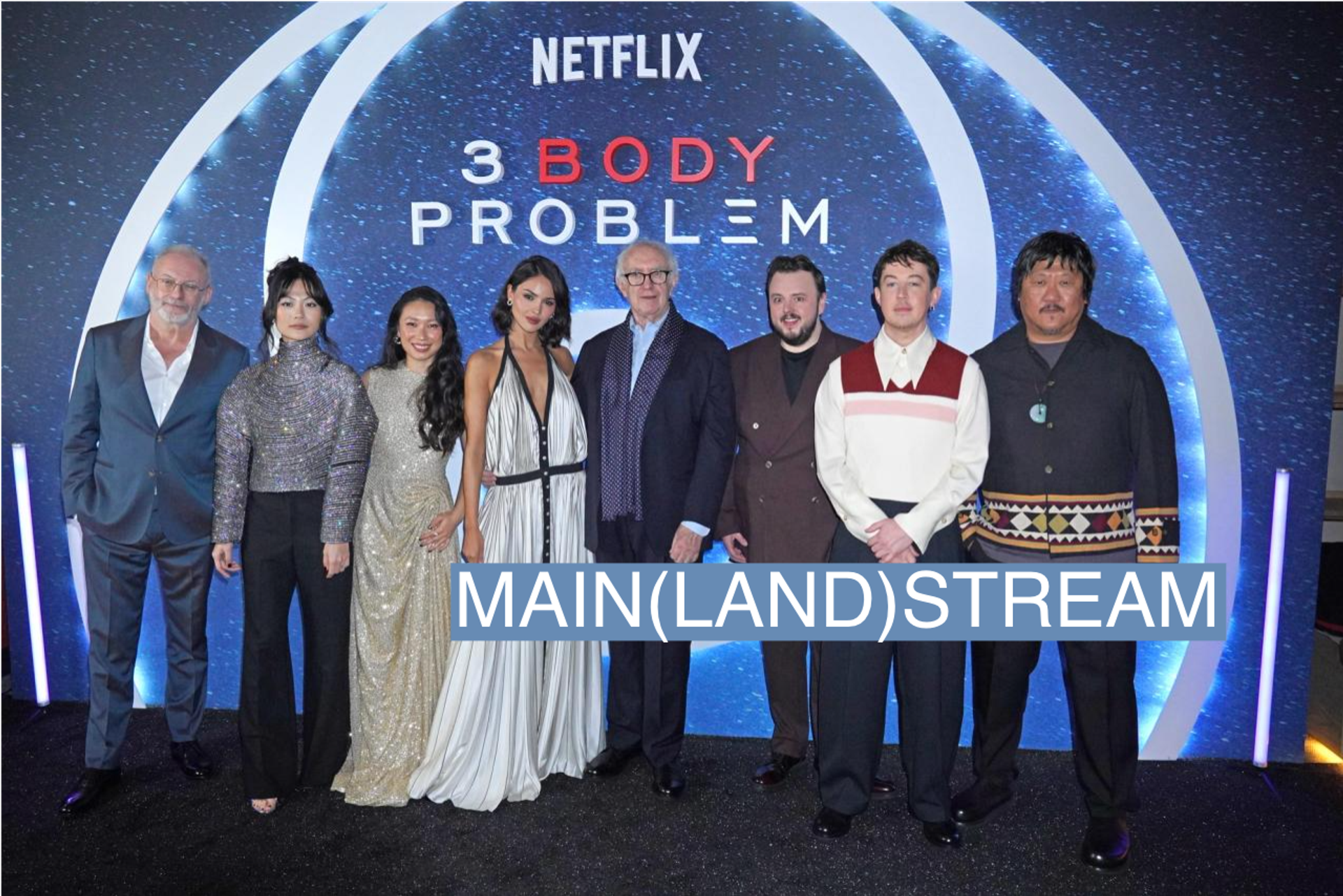The News
Netflix’s adaptation of the highly-acclaimed Chinese science fiction novel, The Three Body Problem, is at the center of a social media culture war.
Chinese nationalist are criticizing Hollywood’s take on Liu Cixin’s work for casting non-Chinese and non-Asian actors and centering the story in the United Kingdom. The scenes that do focus on China portray the country as “dark” and “tyrannical,” one Weibo user wrote.
While The Three Body Problem and other works by Liu have become some of China’s most revered cultural exports of the 21st century, they also illustrate Beijing’s tightening grip on entertainment to shape the country’s global narrative.
SIGNALS
Entertainment critics are happy that Chinese content is becoming mainstream
Contrary to the nationalists, Beijing’s entertainment critics appeared more excited about the international popularity of Chinese content. The Netflix series is not only a “fresh” interpretation of Liu Cixin’s work, but it is “also an important contribution to global science fiction literature,” the Chinese movie and TV review blog Mtszimu wrote. While China’s own television adaptation was a critical success, Mtszimu noted that Hollywood studios have “more advantages in special effects and screen execution,” and the reviewers were left “shocked” at the CGI innovation in the Netflix version.
‘The Three Body Problem’ tested the limits of China’s sci-fi censorship
Beijing still censors science fiction content to some extent. While most sci-fi authors are known to self-censor, they have to follow a few explicit guidelines: Since 2013, China has banned time travel narratives citing concerns that it disrespects and distorts Chinese history, according to a report from the Science Fiction Studies academic journal. But The Three Body Problem notably touches on the Cultural Revolution, Mao Zedong’s campaign to preserve communism that led to years of chaos in China. Ken Liu, who translated the novel to English, said that criticism of the Cultural Revolution is tolerated because Chinese leaders today largely agree the campaign was a failure. Still, the Chinese version of Liu’s novel places the Cultural Revolution scene in the middle of the first book as opposed to the opening because the “publisher worried that the opening scenes were too politically charged.”
China’s screen adaptations of Liu’s novels take nationalist approach
Recent mainland screen adaptations of Liu’s work — notably the 2023 film version of Wandering Earth — have zeroed-in on nationalist elements and themes, leading observers to decry the film adaptation as propaganda, Radio Free Asia reported. The plot of Wandering Earth centers on the world coming together to save Earth from being engulfed by the sun, but the movie’s screenwriters portrayed solutions rooted in “strong family ties, reliance on Chinese heroism in the face of failing international systems, and an extended acceptance of what it means to be Chinese,” researcher Layne Vandenberg wrote for The Diplomat.

